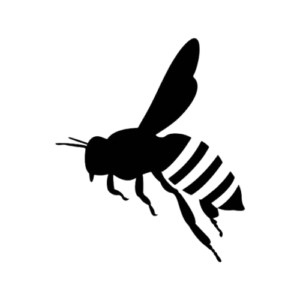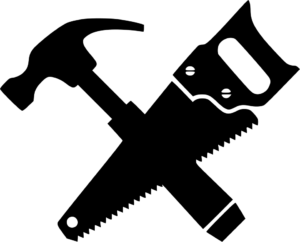Skunks can be a major problem, but not one that is difficult to control. Skunks are pest animals that typically live near people’s homes to find a food source. Skunk removal issues usually occur during the summer months when they look for food sources. Skunks prefer to take their time and have plenty of time to assess the potential threat or reward for approaching an area. After much deliberation, these creatures will eat from a cache they’ve buried near your home or strike out on their own to find more food. These animals are scavengers and opportunists. If there are any other sources available, skunks will be more than happy to take advantage.
Skunks will often use holes in your yard, under decks, or even abandoned burrows that are near their food sources as a den for shelter and protection from predators. These animals prefer the security of living underground and will do just about anything to maintain those territories.
If you suspect that you have a skunk problem, immediately call in a professional removal service immediately before any damage occurs on your property. Skunks are known carriers of rabies and can pass this disease on to other animals they contact, as well as humans. If you suspect that a skunk has bitten or attacked your pet, make sure to seek medical attention immediately. Once symptoms for rabies appear the result is almost always fatal. Moreover, report any instances of animal bites to wildlife officials as soon as possible so they can keep an eye out for any health issues among area pets – and avoid their spread into populated areas by putting them down immediately if necessary.
Getting Rid of Skunks
Block the den’s opening with rags soaked in animal repellent, and wear a gas mask to protect yourself from the strong odor. Wear leather or thick gloves to protect your hands from the skunk’s bites and scratches. Do not attempt to remove the animal yourself if you are not an experienced trapper.
Shine a work lamp into the den. The light will blind the skunk temporarily and make it easier to catch it. Alternatively, use an animal-repellent spray such as soybean oil mixed with hot pepper, cayenne powder, or mothballs. Block the den’s opening with rags soaked in animal repellent, and wear a gas mask to protect yourself from the strong odor.
Wear leather or thick gloves to protect your hands from the skunk’s bites and scratches. Do not attempt to remove the animal yourself if you are not an experienced trapper. Skunks have snake-like reflexes, sharp teeth, and a strong bite. If caught in a trap, move it as far away as possible while wearing heavy gloves or holding it under an arm.
Removing Skunks
If you have been sprayed by a skunk and come in contact with your own saliva, vomit, or any other contaminated fluids that enter your mouth, nose, or eyes, flush them thoroughly with running water as soon as possible.
The same goes for anything that enters open cuts on the skin. If you contact a skunk from another source (ex: A pet), clean it off immediately and take the animal to a vet if necessary. Leaning it off is very important because even if you are not experiencing side effects such as irritated skin and eyes due to being sprayed by a skunk, there can be delayed reactions.
Skunks are known carriers of rabies and can pass this disease on to other animals they come in contact with – including humans. If you suspect that a skunk has bitten or attacked your pet, make sure to seek medical attention immediately. Report any instances of animal bites to wildlife officials as soon as possible so they can keep an eye out for any health issues among area pets – and avoid their spread into populated areas by putting them down immediately if necessary.





















